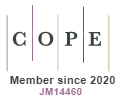Inventiveness in Basic Education during pandemic times: learning from the virtual (actual) classroom
DOI:
https://doi.org/10.5585/dialogia.n36.18338Keywords:
Teachers, Learnings, Presence, Knowledge, InventivenessAbstract
This article aimed at reflecting on the multiple learnings in the classroom space produced through digital technologies. Thus, it is the result of a research-training carried out in a private school, with eight elementary and high school teachers. Due to the pandemic, the face-to-face classes were transferred to online platforms - a virtual environment that replaced, for an indefinite period, face-to-face classes. The methodology used for collecting data was the sensitive and reflective listening to the teachers through the Investigative-Formative Dialogical Circle, which happened in virtual meetings. The results, which were based on the recorded and transcribed content, were analyzed by using the principles of Textual Discursive Analysis. The content of the dialogue raises the questioning and inventiveness of basic education as possibilities for interaction, empathy, valuing effort and teaching knowledge, which are configured as learning in this virtual context.
Downloads
References
CASASSUS, Juan. Fundamentos da educação emocional. Brasília: UNESCO, Liber Livro Editora, 2009.
COLL, Cesar S; MONEREO, Carlos. Psicologia da educação virtual: aprender e ensinar com as tecnologias da informação e da comunicação. Porto Alegre: Artmed, 2010.
DELORS, Jacques (coord.). Educação: um tesouro a descobrir: Relatório para a UNESCO da Comissão Internacional sobre Educação para o Século XXI. Tradução de José Carlos Eufrázio. São Paulo: Cortez Editora. Brasília: Unesco, 1998.
HARGREAVES, Andy; SHIRLEY, Dennis. La cuarta vía: el prometedor futuro del cambio educativo. Barcelona: Ediciones Octaedro, 2012.
HERNÁNDEZ-HERNÁNDEZ, Fernando. Escenarios para cuestionar y expandir la formación permanente. In: SANCHO GIL, Juana Maria; HERNÁNDEZ-HERNÁNDEZ, Fernando (Orgs.). Maestros al vaivén: aprender la profesión docente en el mundo actual. Barcelona: Ediciones Octaedro, 2014.
HENZ, Celso. Círculos Dialógicos Investigativo-Formativos: pesquisa-formação permanente de professores. VIII Seminário Nacional Diálogos com Paulo Freire: por uma Pedagogia dos direitos humanos. Anais. Bento Gonçalves: IFRS: 2014.
HOMER-DIXON, T. The ingenuity gap: Can We Solve the Problems of the Future? Toronto: Alfred A. Knopf, 2000.
JOSSO, Marie-Christine. A experiência de vida e formação. São Paulo: Paulus, 2010.
LÉVY, Piérre. A Emergência do cyberspace e as mutações culturais. In: PELLANDA, Nize Maria Campos; PELLANDA, Eduardo Campos (Org.). Ciberespaço: um hipertexto com Pierre Lévy. Porto Alegre: Artes e Ofícios, 2000.
______. A inteligência coletiva. São Paulo: Loyola, 1998.
MORAES, Roque. Uma tempestade de luz: a compreensão possibilitada pela análise textual discursiva. Ciênc. educ. (Bauru) [online]. 2003, vol.9, n.2, pp.191-211. ISSN 1980-850X. https://doi.org/10.1590/S1516-73132003000200004.
PALFREY, John; GASSER, Urs. Nascidos na era digital: entendendo a primeira geração de nativos digitais. Porto Alegre: Armed, 2011.
PÉREZ GÓMEZ, Ángel I. Educação na era digital: a escola educativa. Porto Alegre: Penso, 2015.
PÉREZ LINDO, Augusto. Para que educamos hoy? Buenos Aires, Argentina: Biblios, 2010.
ROSA, Miriam S. de Oliveira. Reducando os sentidos educando a presença. In: CUNHA, Jorge Luis; VICENTINI, Paula Perin (Org.). Corpos, saúde, cuidado de si aprendizagens ao longo da vida: desafios (auto) biográficos. Porto Alegre: EDIPUCRS; Natal: EDUFRN; Salvador: EDUBNEB, 2012.
TARDIF, Maurice. Saberes docentes e formação profissional. Petrópolis, RJ: Vozes, 2013.
Downloads
Published
How to Cite
Issue
Section
License
Copyright (c) 2020 Dialogia

This work is licensed under a Creative Commons Attribution-NonCommercial-ShareAlike 4.0 International License.
10.23951/2782-2575-2022-1-41-55
10.23951/2307-6127-2021-3-186-196
- Abstract 958
- PDF (Português (Brasil)) 1437







